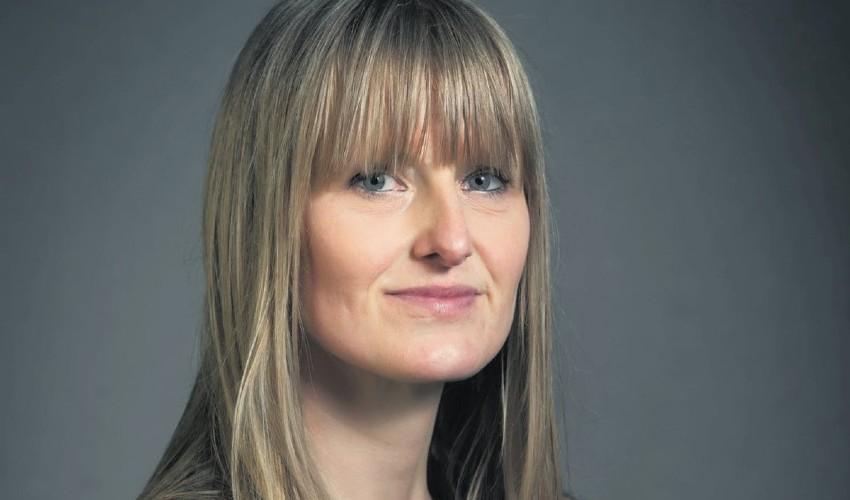
Catherine De Vries, a Political Scientist with Europe in Mind
EUROSCEPTICISM AND POLITICAL ENTREPRENEURSHIP ARE AMONG THE RESEARCH TOPICS OF THE NEW FULL PROFESSOR, WHO LEFT THE UK IN THE AFTERMATH OF BREXITCatherine De Vries, a Full Professor who joined Bocconi Department of Social and Political Sciences on 1 January, defines herself «a sort of Brexit refugee». A native of the Netherlands, she worked for almost ten years in the UK (University of Oxford and University of Essex) before leaving the country in 2018, when she became Westerdijk Chair & Professor Political Behaviour in Europeat Vrije Universitieit Amsterdam. «I decided to move to Bocconi in search of a university in Continental Europe with a truly international outreach», she says. With some Bocconi scholars, such as Francesco Billari and David Stuckler, she worked at Oxford, and with others, such as Piero Stanig, Italo Colantone, Massimo Morelli or Guido Tabellini, she feels she has research affinities.
A prominent political scientist with a vibrant presence in international major media, her research interests stem from her PhD dissertation at Vrije (but with a supervisor from University of North Carolina at Chapel Hill, who introduced her to the American scholarly environment) and regard EU contestation and skepticism. «I have progressively added layers to the same interest», she says. «In the aftermath of the financial crisis, for instance, corruption feelings played a big role in the fall of some European governments and I started studying public opinion with an ampler angle. My studies on remittances also come from the observation of what happens with immigrants in EU countries».
Her work on remittances, published in the American Political Science Review, shows that people that flee authoritarian regimes and send remittances to their families obtain the unintended consequence of empowering the very same regimes they are running away from. Kyrgyzstan is the third country in the world for dependence from remittances in terms of share of their GDP. Studying public opinion in that countries (and checking her results in 20 more), she found that when remittances increase, people attribute their wellbeing to the President, and when they decline, people blame it on him.
As for political corruption, Prof. De Vries wants to understand why it so often goes unpunished. It is certainly difficult to observe and, even when it is, supporters of corrupt politicians tend to dismiss it some way, politicians are very good at trading-off corruption with good economic outcomes and so on. «We find that, in order to be punished, corruption must display a strong deviation from what voters think to be the norm and must be coupled with a strong signal», she says, «as the sinking of the ferry in South Korea in 2014».
In a successful and debated book published in 2018, Prof. De Vries summarized her thinking on Euroscepticism. «We tend to think that Euroscepticism depends on EU politicians’ behavior, but I find it’s not the case, or at least not only», she says. «The most important point is the availability of a viable alternative. Euroscepticism was on the rise in the first half of the 2010s because the national state was singled out as a viable alternative, especially in richer Northern European member states, even if different countries felt different grievances. When Brexit turned out to be more complicated than expected, the alternative faded away and contestation subsided».
In June 2020 Prof. De Vries will publish a book on political entrepreneurs. «We borrow Schumpeter’s theory on innovation and apply it to political change », she says. The analysis shows that successful political entrepreneurs jointly adopt two strategies. First, they choose a mobilizing issue that drives a wedge in the traditional left-right divide. In this way, dominant parties, unable to tag the newcomers, only react when it’s too late. Second, they prevent imitation coming from dominant parties or new challengers by destroying their competence in the eyes of the public opinion with a rhetoric aimed at showing them as incompetent and uncaring. Context conditions such as electoral rules and the collapse of previous political equilibria have, in many cases, boosted the success of these political entrepreneurs.
In December 2019, Prof. De Vries was awarded an ERC Consolidator Grant for her research project LOSS (Narratives of Loss: Unravelling the Origins of Support for Socially Conservative Political Agendas). «The LOSS project contends that experiences of economic hardship translate into specific narratives of loss that, in turn, trigger support for conservative political agendas aimed at restricting the rights of marginalized groups», she explains.
Find out more
Katerina Terytchnaya, Catherine De Vries, Hector Solaz, David Doyle,When the Money Stops: Fluctuations in Financial Remittances and Incumbent Approval in Central Eastern Europe, the Caucasus and Central Asia,in American Political Science Review, Vol. 112, 4, pp. 758-774, 2018, DOI: 10.1017/S0003055418000485.
Catherine De Vries, Hector Solaz, The Electoral Consequences of Corruption, in Annual Review of Political Science, Vol 20:391-408, May 2017, doi: 10.1146/annurev-polisci-052715-111917.
Catherine De Vries, Sara Hobolt, Political Entrepreneurs; The Rise of Challenger Parties in Europe, forthcoming in June 2020, Princeton University Press.
Catherine De Vries, Euroscepticism and the Future of European Integration, Oxford University Press, 2018.
by Fabio Todesco
